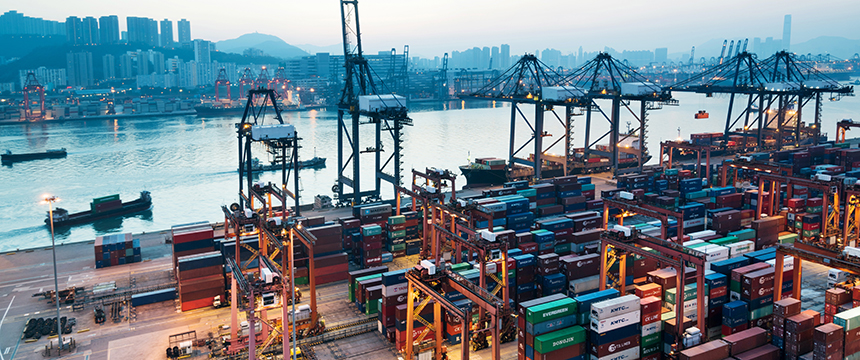What Every Multinational Company Should Know About … The Most Common Supply Chain Risk-Management Failures (Part I)

Regulators around the world are sending a consistent message to companies that operate or source internationally, which is that they must take ownership of their supply chains. In addition, multinational companies face increasing pressure from stakeholders, including investors, customers, and regulators, to align their operations with Environmental, Social, and Governance (ESG) principles, especially in the areas of forced labor, human trafficking, modern slavery, and environmental regulations. These demands for supply chain transparency and integrity require that multinational companies develop robust know-your-supplier and due diligence strategies across their entire supply chain.
Global supply chains accordingly are under intense scrutiny, with consumers, regulators, and investors demanding transparency, ethical sourcing, and environmental responsibility. Yet, while many companies have taken steps to align with these expectations, gaps in compliance and oversight remain widespread, especially in complex, international supply networks. These gaps expose companies to operational disruptions, regulatory penalties, and reputational damage.
Understanding where compliance gaps commonly occur and how to address them is essential for businesses looking to maintain resilient and compliant supply chains that meet evolving regulator expectations. Key missteps in supply chain management often stem from institutional, resource-based, regulatory, and executional challenges.
To help avoid these common pitfalls, this two-part series provides a summary of the most common supply chain issues that we see at multinational companies and offers practical solutions to avoid them. Today’s article focuses on common institutional and regulatory missteps; our next article (to be published in December) will focus on common execution missteps.
By addressing these recurring issues, companies can build supply chains that are not only compliant with evolving regulatory expectations but also resilient against future disruptions. From enhancing supplier oversight to adapting to evolving regulatory standards, being alert for the presence of these common missteps can help companies that operate in and source from foreign sources achieve a balanced, ethical, and sustainable approach to global supply chain management.
| Institutional Hurdles | |
| Overcoming Institutional Inertia | |
| Misstep: Many companies struggle to implement know-your-supplier measures because of institutional inertia — the resistance to change in established practices. This often stems from outdated practices, lack of priority given to ESG goals, and limited cross-departmental coordination. Addressing this inertia requires strong leadership that prioritizes ESG at all levels of the organization, integrating it into the company’s mission and culture. | Practical Takeaway: A general counsel can help change this inertia by educating the c-suite on the potential for serious financial implications if such practices are not implemented. An initial step for such education could include a customs and supply chain audit to identify areas of exposure. If your company is interested in this, please contact the authors. |
| Inadequate Knowledge Distribution | |
| Misstep: Even when goals are set, organizations need to take steps to communicate them effectively across the organization. All stakeholders, including employees, suppliers, and business partners, must understand ESG principles and supply chain expectations, including how they are rapidly evolving and imposing greater oversight requirements. | Practical Takeaway: Companies that regularly source from abroad should hold regular training sessions, workshops, and updates to ensure everyone is aligned and knowledgeable about evolving goals and increasing regulatory expectations, including in the areas of forced labor and human trafficking, UFLPA compliance, and environmental goals (which are increasingly targeted by European regulations). |
| Inconsistent Goal Implementation Across Affiliates | |
| Misstep: For multinational corporations, ensuring compliance and consistency across all affiliates is a daunting task. Goals need to be uniformly implemented, with centralized oversight to prevent deviation. Clear and enforceable policies across all branches subsidiaries is important, as compliance failures abroad can lead to problems at home, especially when it involves imports that are subject to Customs scrutiny. | Practical Takeaway: If your organization has not done an import compliance review in the last two years, consider conducting a customs audit and supply chain review to ensure that your import compliance meets current regulator expectations. |
| Inconsistent Goal Implementation Across Affiliates | |
| Misstep: For multinational corporations, ensuring compliance and consistency across all affiliates is a daunting task. Goals need to be uniformly implemented, with centralized oversight to prevent deviation. Clear and enforceable policies across all branches subsidiaries is important, as compliance failures abroad can lead to problems at home, especially when it involves imports that are subject to Customs scrutiny. | Practical Takeaway: If your organization has not done an import compliance review in the last two years, consider conducting a customs audit and supply chain review to ensure that your import compliance meets current regulator expectations. |
| Inability to Trace Products | |
| Misstep: Product tracing is critical to verifying supply chain integrity, yet many companies lack sufficient tracking capabilities. | Practical Takeaway: To improve traceability, companies increasingly are implementing digital tracking solutions such as blockchain or RFID technologies, or other forms of electronic tracing, to enable end-to-end visibility across the supply chain. Increasingly, these efforts are required because of the need to trace products back to the very last sub-supplier, since compliance increasingly is expected for parts and components that may be supplied by companies not in direct contact with the final manufacturer. |
| Neglecting Sub-Suppliers | |
| Misstep: A common oversight is focusing only on direct suppliers while ignoring the risks posed by sub-suppliers. Sub-suppliers often carry equal or greater risks, especially if they operate in regions with lower regulatory oversight. | Practical Takeaway: Establishing a comprehensive system that requires direct suppliers to monitor their suppliers can mitigate this risk. One step in the customs audit described above is analyzing existing supply chain mapping to help companies identify where gaps exist in their tracking systems. |
| Overlooking the Breadth of Forced Labor and Human Trafficking Regulations | |
| Misstep: New regulations, like the U.S. Uyghur Forced Labor Prevention Act (UFLPA), require companies to demonstrate that their products are free from forced labor. Many companies are unprepared to meet this standard, often due to insufficient know-your-supplier due diligence, lacking documentation, or insight into their full supply chains. | Practical Takeaway: Comprehensive supply chain mapping and auditing of the supply chain can help companies comply with such laws and be prepared for potential UFLPA detentions, thus avoiding potential fines or blockages of goods at the border. |
If you have questions or concerns about this article, please feel free to reach out to any of the authors or your Foley & Lardner attorney. If you would like to see future updates regarding “What Every Multinational Company Needs to Know” about operating in today’s complicated international trade world, please sign up for our biweekly email list. Click here to register.
To view all articles in our “What Every Multinational Company Needs to Know” series, click here.


